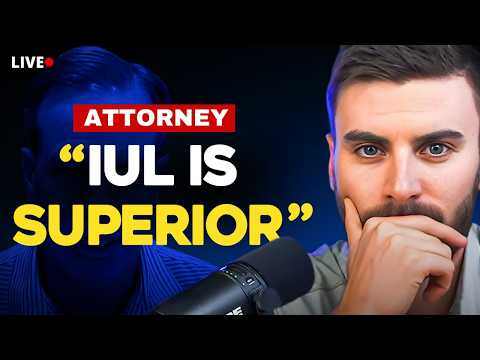When Should You Take A Loan From Your Life Insurance Policy
BetterWealth
December 15, 2025
When we talk about infinite banking, it's a two-part question. First, is life insurance the right asset under certain assumptions? The answer is yes. The next question is, when should you use your policy loan?
There's no wrong answer here. Different experts may teach this differently, and that's okay. It's important for the industry to understand that you need not agree to be correct. Here's how I explain it: when you take a loan, you're doing so from the insurance company or a third party, not from yourself. This can make things more efficient. The cost of capital is essentially the interest rate the insurance company or third party charges. Let’s say that rate is 5%.
If you're taking a 5% loan to engage in a market activity, you need to ensure that activity earns more than the cost of capital. For instance, it wouldn’t make sense to pay off a mortgage at 5% if the mortgage rate is only 3%. However, if you have a debt at 7% and can pay 5%, that’s a 40% margin on your money. Or if you take a 5% loan to invest in something yielding 12%, that’s a 140% return on your money. Your funds remain in your policy, serving as leverage.
There are various explanations for how to use infinite banking. Some suggest running all expenses through the policy, but we view this as only the beginning. Step one is understanding the concept; step two is optimizing strategy for efficiency.
When borrowing in the beginning stages of your policy, it’s advisable not to take loans for anything less than a 10% return. Over time, as your policy matures, you can justify borrowing at lower rates. For high-interest debts, like 20% credit card debt, this strategy pays off.
Many investors don’t fully capitalize on their situation. Infinite Banking offers leverage and control by eliminating the traditional banks and working within your own policy.
An Example from Experience
My partner Darius and I have used policy loans for expenses before, but only when it made financial sense. For example, we once used a policy loan to pay off our rent for the year because it offered us a significant discount. We ended up making a 36% return on that transaction because of how the numbers worked out.
This experience underscores the importance of understanding both the process and the product to maximize returns.
Many people can't pay their rent in full upfront or don't think about doing so as a way to earn, but we realized a 36% savings by optimizing our cash flow through controlled capital.
The Importance of Financial Awareness
Understanding what's happening with your salary and income is crucial. Too often, people focus on investments without addressing financial leaks in other areas. We recommend using a process that allows you to retain more of your income. For instance, if you earn $100,000 a year, aim to save more over time by keeping more of what you make.
The goal is to achieve financial maximization and explore investment opportunities that generate cash flow. It's about understanding income differently and stopping financial bleeding before moving forward strategically.
Infinite banking is about optimizing your financial behavior and being disciplined. You might have a mathematically optimized strategy, but unless it is utilized, it cannot produce results.
In conclusion, understanding the nuances of infinite banking and life insurance can greatly enhance your financial strategy. It’s about creating opportunities to use controlled capital to your advantage while maintaining financial discipline.
.png)


